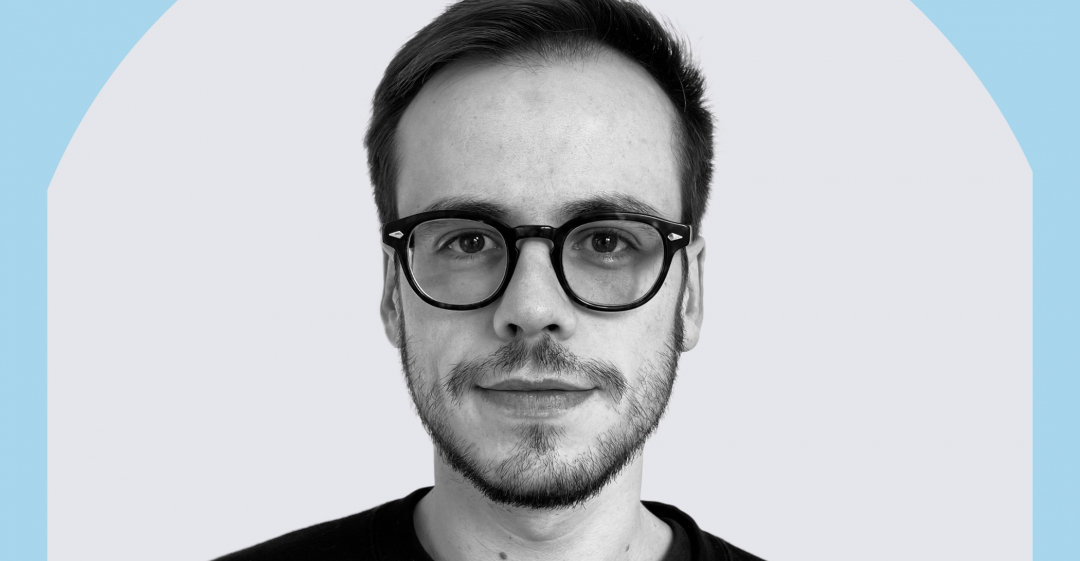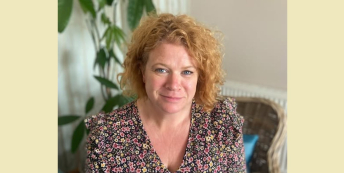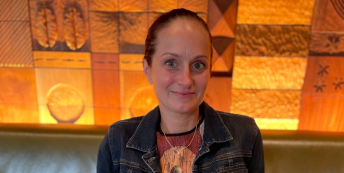“I now feel genuinely energetic going into work in the morning.”

What work were you doing previously?
I previously worked in commercial development roles for media agencies.
My last role was as Business Developer for Adthink, a digital advertising agency. In that role, I was in charge of client acquisition and account management.
What are you doing now?
I'm now a UX Designer for a startup called Kinetix.
Kinetix is a no-code 3D creation tool powered by AI. Their free web-based platform leverages AI motion capture to convert videos into 3D animations.
I'm the very first UX Designer in the company. My role, in nutshell, is to be the voice of our users and translate this into a user-centric experience on our platform.
I carry out user research and usability testing as well as product and user experience design, in close collaboration with our Project Manager and UI Designer.
I’ve also began to become familiar with Web3 concepts and design principles as this is a space in which Kinetix is moving.
Why did you change?
During my time with Adthink, I enjoyed meeting and talking with clients about their business/marketing problems and planning campaigns that could to solve these.
But I understood that I didn't have the right personality for sales.
I was made redundant due in part to the company’s poor financial situation at the time, and my obvious lack of desire to pursue a career in sales!
Although it wasn't a particularly glorious time professionally, it ended up being a blessing in disguise that forced me to reconsider the professional path I wanted to take.
When was the moment you decided to make the change?
After being made redundant I carried on looking for work in commercial development roles in the media industry, to no avail.
Covid hit soon after so that slowed down my job search, but more than anything, it pushed me to face the fact that I needed to change careers.
I consulted counsellors and career counsellors which was massively beneficial in helping me take on a structured approach to my career shift.
How did you choose your new career?
Last year I began helping a friend build an e-commerce platform for his wine business.
I acted as a coordinator for the project, collaborating both with my friend for the business and logistics side of things, and with our web developer for website structure, visual content, copy, user flow, etc.
Whilst I was doing this another friend of mine who works as a project manager for a digital agency suggested I sign up to a course and try to find work in UX Design. He said he worked with UX Designers on a daily basis and felt I had the right personality and background for the role.
I had a very vague idea of what it was, but although I was fascinated by the field, tech was not an industry that seemed accessible.
Are you happy with the change?
I'm extremely satisfied with the change.
I feel a lot more engaged in my day to day work. I feel genuinely energetic going into work in the morning with the aim becoming a more complete UX Designer as well as do my part so Kinetix can achieve its vision.
What do you miss and what don't you miss?
Instinctively I'd say that I don’t miss much about my previous career apart from the human experiences and interesting people I've met along the way.
However, with hindsight I'm grateful to have been able to gain some experience in the world of tech (ad-tech), albeit through a commercial perspective. I made the most of the training available and was opportunistic in finding ways to learn and develop as many transposable skills.
Ultimately, I left advertising and agency work as I didn’t feel that the industry and agencies, as structures, were going to offer me the right types of options to develop a career path that made sense to me.
How did you go about making the shift?
My friend who raised the idea of UX design suggested I do the UX Design Immersive course with General Assembly (GA).
One month later, it was my first day on their remotely-held course. The whole experience was both humanly and intellectually fulfilling. I was supported by an incredible cohort of diverse and interesting people as well remarkable tutors.
Two months after the end of the course I was beginning my first day as a UX Designer.
How did you develop (or transfer) the skills you needed for your new role?
I learned all the skills I needed for my new role on my course for the most part.
I'd carried out and studied market research, benchmarking and research methods in the past, for example, but on my course, I had to re-learn how to do all of this with the approach of a UX Designer.
I developed these skills through doing and learning, at first during the course and then by doing my best to stay consistent with practice throughout my job search.
I did this by having a passion project, joining designer communities online, reading books, taking part in design workshops and keeping updated on all things UX, in the specific areas I was interested in.
I also had a couple of mentoring sessions through ADP List (a mentoring community) and reaching out to fellow UX Designers on LinkedIn. These allowed me to reality check some of my expectations of the day to day work and make sure I was doing the right things to help me land a job.
One of my favourite aspects of UX Design as a profession is how keen and willing to help fellow designers are!
What didn’t go well? What wrong turns did you take?
My shift went reasonably well and in quite a speedy fashion if I’m honest.
Once I started the course with GA, I knew that I'd have access to the Outcomes programme which would help me structure my job search. Their results are impressive, so I had the confidence that I just needed to trust their process and things would go well.
The course, the Outcomes programme and starting a new job was intense, but intellectually stimulating.
Getting used to working in an innovative start-up has certainly been an exercise in adaptation, but I’m glad to work in an environment that is so dynamic. I’m learning to adapt my design skills and methods to fit with the speed at which things change.
With such a pace, I’m bound to make mistakes and take wrong turns, but I’m fortunate to have a team that embraces a growth mindset so we are not crippled by the fear of making errors in our day to day work.
How did you handle your finances to make your shift possible?
Finance-wise, I’m lucky enough to have had my family cover the expenses of my course.
During my course I was staying with my family, and was benefiting from government job seekers allowance and guidance.
What was the most difficult thing about changing?
The toughest thing was probably keeping up with the amount of work and hours I had to put in to complete the course and then carry out the job search.
I had to put my social life on hold for a bit and throw myself into it.
At times, it was difficult to switch off and I had to work late into the night, but I quickly understood that I had to be careful and make time for rest and spending time outside – to treat the process as a marathon and not a sprint.
What help did you get?
GA’s Outcomes programme was an abundant source of help.
Their career councillors guided my cohort in writing CVs, Cover Letters, setting up our LinkedIn, Portfolio, Medium, etc. They also guided us on anything from interviews, to salary negotiations.
My fellow course mates were also a valuable source of help. We set up job search groups, in which we'd meet a few times a week and help each other out with advice and deliverables feedback.
We also held each other accountable in our job search objectives, which I found essential.
Other than that, the APEC and Pole Emploi (two government-run job search agencies in France, where I'm based) helped to adjust my CV and job search approach to the local employment market.
What resources would you recommend to others?
ADP List was a great place to interact with professionals and understand how you can best navigate your career shift, regardless of the point at which you are at in your journey.
I'd also look into books like Creative Confidence by the Kelley Brothers from IDEO, and Carol Dweck’s Growth Mindset. Both of these were recommended by GA and allowed me to adopt the right ethos to take on this career shift.
What do you wish you'd done differently?
I’m pretty happy with the way things have gone so far.
I obviously wish that my friend would have suggested I consider doing a UX Design course earlier on, but you can’t really force a career shift!
It takes time and experience experimenting in other industries, through passion/side projects or internships and trusting your instinct. The shift needs to feel right.
What would you advise others to do in the same situation?
It really depends.
Everyone has got their own circumstances. I’m well and truly aware of the privileged situation I’m in. I was lucky enough to be both financially and morally supported by my family and friends.
All in all, I'd say that if the career shift feels right, go for it and persevere until you get there. Stay confident and persistent. It will take the time that it takes.
Avoid comparing yourself to seasoned professionals on social media, that’s a massive motivation killer.
Lastly, don’t hesitate to reach out for help. Once you start talking to people around you about your career shift, you’ll realise that your network is a lot bigger than you may have initially thought!
Thanks to our friends at General Assembly for this story. To find out more about their work, visit www.generalassemb.ly, or learn more about them in our Retraining Directory.



